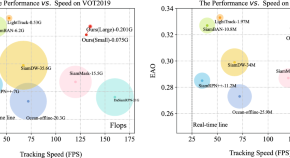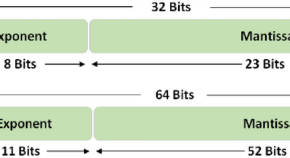
Collection
Call for Papers: Special Issue on Real-Time Machine Vision Acceleration Technology and Applications
- Submission status
- Closed
Machine vision involves the technology and methods to provide image-based automatic inspection and analysis for applications such as product inspection, process control, and vehicle guidance. Recently, with the use of deep learning and hardware accelerators, machine vision applications are emerging leading to high economic, societal, and industrial impact.
Machine vision methods not only need to accurately extract information from image/video data acquired through various sensors, but also ensure that the speed of information extraction can meet the needs of practical application scenarios. A key requirement in real-time machine vision applications is the need to ensure high-speed performance when running on a platform with limited resources while also efficiently executing complex algorithms. Meeting the above real-time requirements is non-trivial. Modern machine vision algorithms can be very diverse, ranging from traditional image processing methods to large scale deep learning frameworks. The hardware platforms that host these algorithms also include GPUs, TPUs, FPGAs and other processing engines. A high-performance machine vision system requires an algorithm well-designed and accelerated by taking full advantage of software optimization or/and hardware architectures, and this still leaves much room for exploration.
This special issue places emphasis on acceleration methods and designs, typically targeting the combination of software and hardware, for the purpose of achieving practical machine vision systems.
Topics of Interest
All submissions must address acceleration issues (software, hardware, or both) related to machine vision processing to fall within the scope of this special issue. Topics of interest include, but are not limited to:• Real-time/parallel/low latency/compression/optimization algorithm design for machine vision applications
• Tiny real-time machine learning model design
• Real-time autonomous vehicles/robotic/medical/industrial intelligent systems for machine vision
• Real-time machine vision on mobile platforms.
• Reconfigurable accelerator/heterogeneous processor architecture designs for machine vision applications
• Survey/Review of machine vision acceleration
• Real-time performance evaluation and analysis for machine vision
• Benchmarking of real-time machine vision algorithm/model/system/architecture technologies
Important Date
Manuscripts submission deadline: May 31, 2023Reviews of manuscripts begin immediately after submission and accepted manuscripts will be published immediately after acceptance and proof correction under a Topical Collection identified by the special issue topic.
Submission Guidelines
• Authors are invited to submit original manuscripts that have not been published and are not currently under review by other journals or conferences. Authors will be asked to serve as reviewers for other manuscripts submitted to this special issue due to their expertise in the field of machine vision acceleration.
• Manuscripts need to be prepared according to the Instructions for Authors provided on the JRTIP online submission page at:https://www.springer.com/journal/11554/submission-guidelines. Submitted manuscripts will be peer-reviewed according to the JRTIP reviewing procedure. Note that the page limit of manuscripts is 12 (double column format).
• During the submission procedure in SNAPP, at the submission step under “Additional Information”, authors should select this special issue “Real-Time Machine Vision Acceleration Technology and Applications”.
• Prior to sending full manuscripts, it is highly recommended to query from the guest editors their appropriateness for the special issue.
All papers must be prepared in accordance with the Journal guidelines: https://www.springer.com/journal/11554
Submitted papers should present original, unpublished work, relevant to one of the topics of the collection. All manuscripts will be subject to the Journal’s rigorous peer review policy, by at least two independent reviewers. This evaluation will cover the following aspects, but will not be limited to: relevance, significance of contribution to the field, technical quality, scholarship, and quality of presentation. It is the policy of the journal that no submission, or substantially overlapping submission, be published or be under review at another journal or conference at any time during the peer review process.Editors
-
Qiong Chang
(Lead Guest Editor), Tokyo Institute of Technology, Japan, q.chang@c.titech.ac.jp
-
Tinghui Ouyang
National Institute of Advanced Industrial Science and Technology, Japan; ouyang.tinghui@aist.go.jp
-
Joni Zhong
Hong Kong Polytechnic University, Hong Kong, China, joni.zhong@polyu.edu.hk
-
Weimin Wang
Dalian University of Technology, China, wangweimin@dlut.edu.cn
-
Daniel Hernandez Juarez
SLAMCore, UK, dhernandez0@gmail.com
Articles (17 in this collection)
-

-
Faster RCNN based robust vehicle detection algorithm for identifying and classifying vehicles
Authors (first, second and last of 8)
- Md Khorshed Alam
- Asif Ahmed
- Saiful Islam
- Content type: Research
- Open Access
- Published: 30 July 2023
- Article: 93

-
A real-time recognition gait framework for personal authentication via image-based neural network: accelerated by feature reduction in time and frequency domains
Authors (first, second and last of 7)
- Xuan Huang
- Ran Dong
- Shoji Nishimura
- Content type: Research
- Published: 29 July 2023
- Article: 92
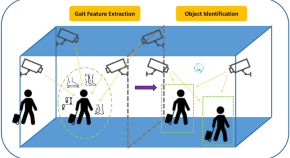
-
Fisher pruning for developing real-time UAV trackers
Authors (first, second and last of 5)
- Pengzhi Zhong
- Wanying Wu
- Shuiwang Li
- Content type: Research
- Published: 27 July 2023
- Article: 91
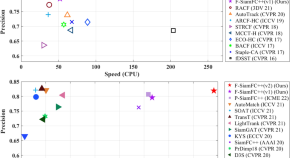
-
Complementary spatial transformer network for real-time 3D object recognition
Authors
- K. P. Krishna Kumar
- Varghese Paul
- Content type: Research
- Published: 22 July 2023
- Article: 88

-
An RGB-D SLAM algorithm based on adaptive semantic segmentation in dynamic environment
Authors
- Song Wei
- Zhang Li
- Content type: Research
- Published: 20 July 2023
- Article: 85

-
Smart camera with image encryption: a secure solution for real-time monitoring in Industry 4.0
Authors
- C. Sekar
- Vinod Ramesh Falmari
- M. Brindha
- Content type: Research
- Published: 12 July 2023
- Article: 83

-
FPGA acceleration of secret sharing for 3D data cubes
Authors (first, second and last of 5)
- Zi-Ming Wu
- Tao Liu
- Hong-Mei Yang
- Content type: Research
- Published: 10 July 2023
- Article: 82
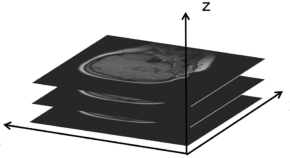
-
Evolutionary algorithm for optimized CNN architecture search applied to real-time boat detection in aerial images
Authors (first, second and last of 6)
- Ilham Zerrouk
- Younes Moumen
- Toumi Bouchentouf
- Content type: Research
- Published: 28 June 2023
- Article: 78

-
U-DPnet: an ultralight convolutional neural network for the detection of apples in orchards
Authors (first, second and last of 5)
- Hao Wan
- Xilei Zeng
- Ke Zhang
- Content type: Research
- Published: 21 June 2023
- Article: 76

-
Lightweight real-time lane detection algorithm based on ghost convolution and self batch normalization
Authors (first, second and last of 6)
- Xuecun Yang
- Wei Ji
- Hang Xue
- Content type: Research
- Published: 09 June 2023
- Article: 69
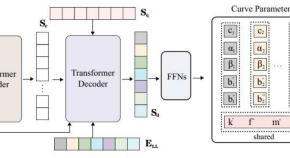
-
Improving image encoding quality with a low-complexity DCT approximation using 14 additions
Authors (first, second and last of 4)
- Abdelkader Mefoued
- Nasreddine Kouadria
- Noureddine Doghmane
- Content type: Research
- Published: 21 May 2023
- Article: 58

-
Real-time traffic sign detection model based on multi-branch convolutional reparameterization
Authors (first, second and last of 4)
- Mengtao Huang
- Yiyi Wan
- Jiaxuan Wang
- Content type: Research
- Published: 19 May 2023
- Article: 57

-
Road disease detection algorithm based on YOLOv5s-DSG
Authors (first, second and last of 6)
- Wanni Xiang
- Haichen Wang
- Yali Duan
- Content type: Research
- Published: 18 May 2023
- Article: 56

-
RT-Droid: a novel approach for real-time android application analysis with transfer learning-based CNN models
Authors
- Murat Tasyurek
- Recep Sinan Arslan
- Content type: Research
- Published: 09 May 2023
- Article: 55

-
A real-time fire detection method from video for electric vehicle-charging stations based on improved YOLOX-tiny
Authors (first, second and last of 4)
- Yifan Ju
- Dexin Gao
- Qing Yang
- Content type: Research
- Published: 28 April 2023
- Article: 48

-
SiamLight: lightweight networks for object tracking via attention mechanisms and pixel-level cross-correlation
Authors (first, second and last of 4)
- Yu-e Lin
- Mengfan Li
- Chenxing Xia
- Content type: Research
- Published: 11 March 2023
- Article: 31
